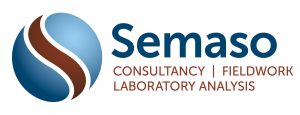The maintenance of marine ports and habours is a major global business estimated at around €6.415 bn1. However, advances in maritime transport and port operations have not been matched by innovation in sediment management. The industry continues to rely on conventional methods of repeated maintenance dredging and offshore disposal despite adverse consequences for carbon emissions, sediment circulation patterns and ineffective treatment of hazardous contaminated mud: sediments in harbour basins are often heavily contaminated from the TBTs previously used in anti-fouling paint and other toxic pollutants including heavy metals related to the movement of scrap metals.
Since november 2017 SEMASO is sponsoring a PhD student who will contribute to the development of a novel sustainable sediment management system. This is in collaboration with SEMASO, an SME pioneering the use of Active Nautical Depth (AND), a process whereby sediment is conditioned through aeration to create a navigable slurry. It is known from empirical field and experimental evidence, (e.g. Cruz et al 2014) that the process of aeration assists microbial communities to speed the degradation of harmful tributyltin (TBT) into less toxic compounds. However, the precise scientific mechanism is unknown and there has been little research into the effect on other contaminants. Therefore, the aim of this PhD is to assess the factors controlling the degradation of TBT in port and harbour sediment. The outcomes will help to create an innovative new bio-remediation service for the company, and reduce carbon emissions through less dredging need.








